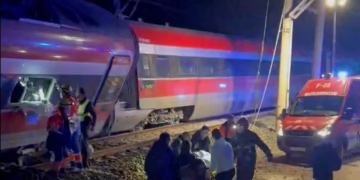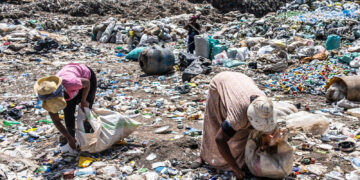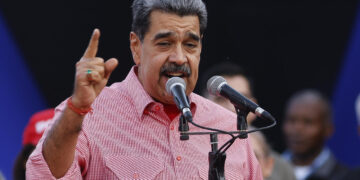WASHINGTON, Oct 9 (The African Portal) – Around 170,000 tons of relief supplies, including food, medicine and tents, can be delivered to the Gaza Strip as soon as Israeli authorities give their OK following Thursday’s approval of the initial phase of a ceasefire deal, a spokesman for the UN Office for the Coordination of Humanitarian Affairs (OCHA) has said.
Earlier this week, OCHA said Israeli authorities have either failed to approve or blocked almost half of its registered aid convoys since Israel began its retaliatory offensive against Hamas in Gaza two years ago.
The spokesman said OCHA needs open border crossings, guarantees that aid workers and those in need can move safely, visas for foreign personnel and the unrestricted entry of relief supplies to properly help the Gaza population.
He also said the private sector in the Gaza Strip must be revived as quickly as possible.
Trump’s Gaza plan ‘littered with minefields’ — Middle East expert to DW
Fawaz Gerges, an expert on politics in the Middle East, has told DW that too much optimism was unwarranted following Israel and Hamas’ approval of a first phase of the plan for Gaza peace put forward by US President Donald Trump.
Gerges, who is professor of Middle Eastern politics and international relations at the London School of Economics, said Trump’s 20-point plan “is littered with minefields,” even though Thursday’s announcement offered “a moment of hope” and probably meant “the end of Israel’s war in Gaza.”
“Will Hamas disarm? I doubt it very much. Will Israel basically pull out all its forces from Gaza? I doubt it very much,” Gerges told DW.
“Who will run Gaza the morning after? Hamas and […] various Palestinian groups have made it very clear [that] they would like the Palestinian Authority to be in charge. Yet President Trump and Israel insist on a Board of Peace made up of basically mainly foreigners.”
Gerges dampened any too great hopes for peace in the region, saying that the Middle East “has been a graveyard for political optimism.”
“There are many things that could go wrong. The question for me is, will President Trump have the attention span to really follow up after the end of the first phase, the exchange of hostages for Palestinian prisoners?”
The involvement of the US, as well as regional powers Turkey, Egypt and Qatar, is crucial to pressure Israel and Hamas to uphold a ceasefire, he said.
But after the war stops, Israel also has to face “a reckoning moment,” Gerges said, noting that the majority of UN members recognize Palestinian statehood, while most Israeli politicians are against Palestinian self-determination.
“Regardless of what happens today and tomorrow and the morning after, without recognizing the basic rights of the Palestinians, without allowing the Palestinians the right for self-determination, without reconciliations, genuine reconciliation between Israel and Palestine, you will never have lasting peace in the region,” he added.
“This is the lesson that we have learned since 1947,” Gerges said, referring to the UN adopting the plan to partition Palestine into an Arab and a Jewish state, leading to the founding of the state of Israel a year later.
Credit: DW






